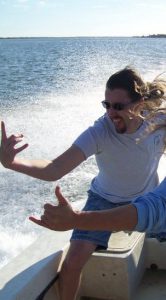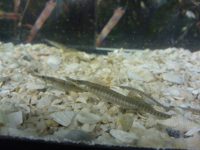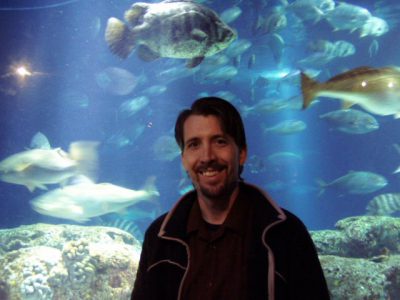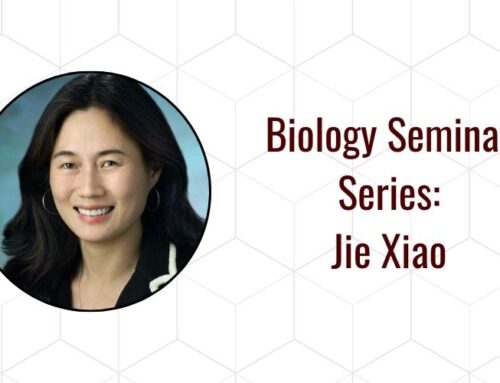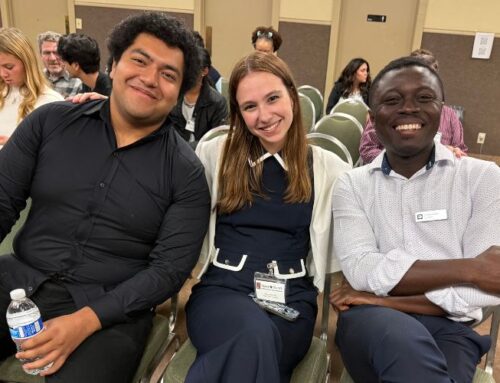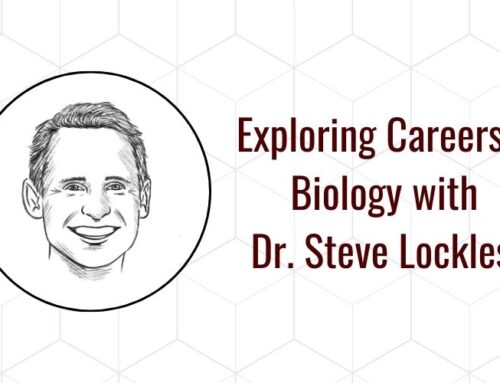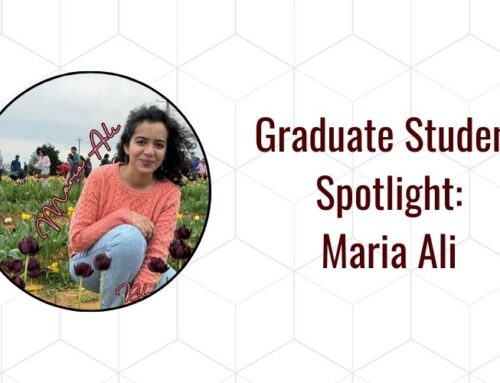Graduate Student Spotlight, Andrew Anderson
This month’s Graduate Student Spotlight highlights Andrew Anderson. A graduating Ph.D. Student in the Adam Jones Lab, Andrew studies sexual selection and evolution in fishes. Learn more about Andrew and his work in this month’s Spotlight below.
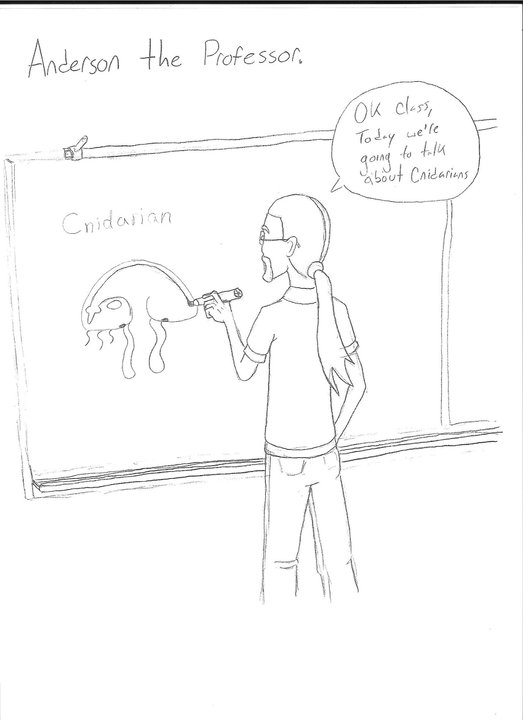
Credit: Hiram Kame
Andrew Anderson
I am a sixth year Ph.D. student finishing my work in the Jones Lab in sexual selection and evolution. I received a B.S. in Marine Science and Biology from the University of Miami, worked as a high school teacher for 5 years, then went to College of Charleston where I earned a M.S. in Marine Biology. All my background and experience led me to want to study evolution and sexual selection in fishes, and that was a good fit here at A&M.
My work has focused on sex-hormone response elements, the genomic location where nuclear receptors bind and regulate gene expression, and how they influence or are influence by sexual selection. Mostly I’ve worked with a local species of pipefish (close relatives of the seahorse) which are sex-role reversed. The males carry the eggs in a pouch and the females compete for access to males. This competition has led to females having deep bodies and bands as well as engaging in courtship to attract males. I’ve conducted behavior experiments and performed transcriptomic work on the secondary sex traits of this species. I’ve also done work building a search algorithm that scans genomes for estrogen response elements, and done comparative work on response elements and sexual selection in primates.
What is on your bookshelf?
Various textbooks (still use them!), non-fiction science books, Dungeons and Dragons books. I love story-telling, creating and interacting with a story of your and others’ making is fun. I’ve had characters and worlds move in directions I never expected because of the collaborative efforts and randomness table-top RPGs can create.
What is one thing people would be surprised to know about you?
I was this close to being a jazz performance major (saxophone). I was pretty good for a high school student, I made state bands and awards, even had a solo in the Sydney Opera House! I still play when I can and I can play a number of other instruments, I’m hoping to find places to play at my next stop. That said, I’m certainly not a great musician compared to professionals since I never took that next step. I’m happy with my decision not to professionally pursue music though as the repetitive nature required to become excellent just isn’t my forte.
What’s it like balancing work and being a dad?
Not easy, definitely makes me maximize my time at work so I have time to spend with my children and help with all the things they need. I’m lucky to have an amazing wife and a support network of family that helps me manage both. Despite the occasional struggles having kids is absolutely worth it to me.
What advice would you give to a new graduate student?
Grad school is a job, treat it like such. Have a life outside it. Value yourself and your contributions. Any time you question if something you or someone else is doing is fair or required, ask yourself would this be acceptable for an employee/employer anywhere else? Saves you stress and guilt, and honestly makes your output better.
What strategies did you use to be successful as an undergraduate student? As a graduate student?
I wasn’t the best undergad. My job-like approach really made the difference for me in graduate school. Also, I spent time as a high school teacher and saw every mistake I made as an undergrad in my students. Watching the inevitable play out really opened my eyes to the fact my teachers’ advice throughout my time in school was right and I retroactively took those lessons to heart.
What got you so interested in evolution to make it your life’s work?
I’ve always been interested in why organisms ended up with the traits they have. Started as a “dinosaur kid” and naturally all the changes life went through before and after is fascinating. I got my master’s in population genetics and that really piqued my interest in longer scale evolutionary patterns on the genetics/genomics level.
Why did you choose to focus on sexual selection?
It seems like the weirdest and wildest traits in nature all revolve around sex and reproduction, so why not?
Tell me about a project or accomplishment that you consider to be the most significant in your career.
Sappy answer. Project is ongoing, but definitely my kids. Can’t wait to see the results!
Are you prepared for what comes next? What are your immediate plans?
I don’t think anyone is ever fully prepared for anything, but I feel I have enough tools to handle what may come my way. I have accepted a visiting assistant professor position at Reed College (Portland, OR) where I will teach Animal Behavior, guide senior theses, have a lab to manage, and host a seminar on a topic of my choosing (so probably sexual selection).
Give us 5 adjectives that describe you as a scientist.
Curious, interested, relaxed, flexible, open.
What projects will you work on next?
I have a group of gouramis (a type of fish) where males mouthbrood the young. One species has evolved sexual dimorphism where females have elaborate banding patterns, much like the pipefish I’ve worked with here. What’s really cool is a species in this group has undergone a flip in behavior where the female mouthbroods. I have been able to sequence a bit of the genomes of a few of these species and I plan on investigating what changes might have occurred at the genomic level that might cause such a switch or development of dimorphism. At Reed I’ll have access to the species and a fish room to get after some basic life history questions with these guys.
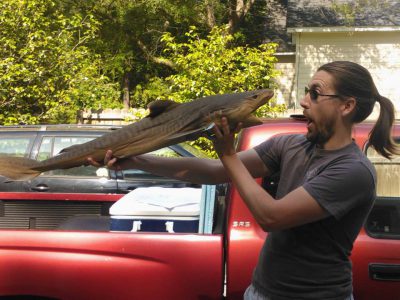
Andrew Anderson
Graduate Student
Jones Lab
